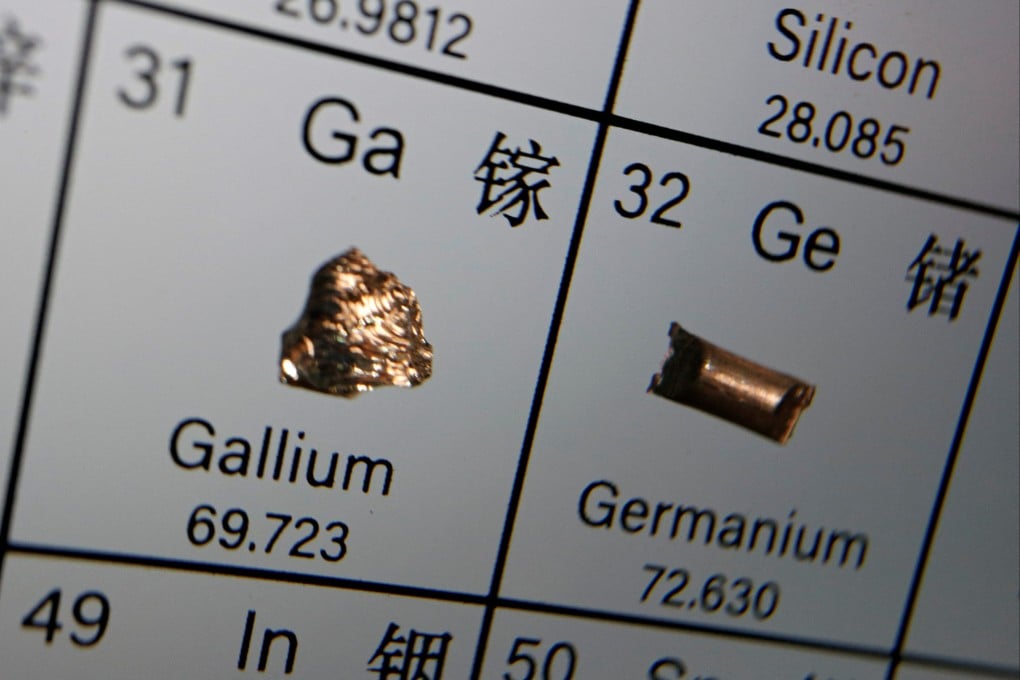Advertisement
China’s gallium and germanium exports tumble as controls on shipments to the West take toll
- Beijing’s restrictions in response to Washington-led tech curbs affected deliveries to Japan and the United States
- Sales to Russia are up but more limits could be in the works for Western partners, analysts say
Reading Time:2 minutes
Why you can trust SCMP
12

Chinese exports of two critical semiconductor metals plunged last year under the weight of Beijing’s controls on shipments to the United States and its allies.
Analysts said the drop-off could just be the start as Beijing amasses weapons of retaliation against tech curbs by Washington and its allies.
According to the General Administration of Customs, the full-year value of gallium exports fell by two-thirds to US$8.47 million in 2023 while sales of germanium were down 8 per cent to US$48.42 million.
Advertisement
China dominates both markets, accounting for over 95 per cent of the world’s gallium production and about 60 per cent of germanium output.
Beijing imposed restrictions on exports of the raw materials and several of their compounds in August in apparent response to Washington-led restrictions on Chinese access to advanced technology.
Advertisement
Exports of the two raw materials to the US stopped from July, with annual gallium shipments to the United States dropping by just over 20 per cent for the full year to US$352,710 while germanium increased by 51 per cent to US$6.98 million.
Advertisement
Select Voice
Select Speed
1.00x